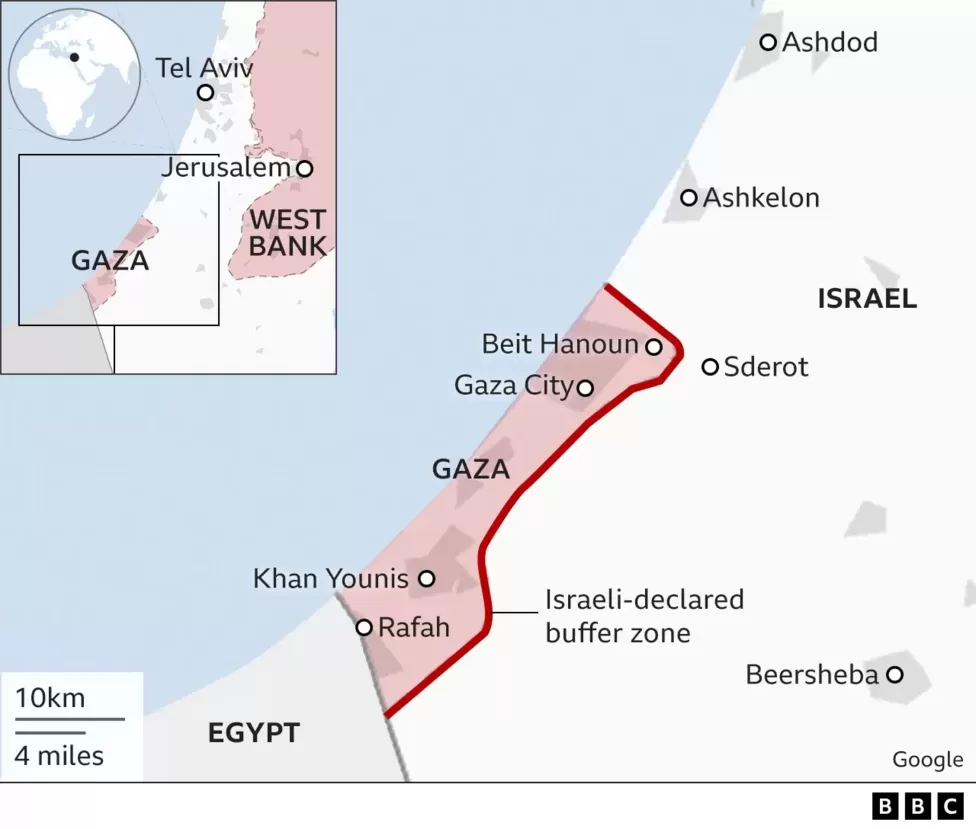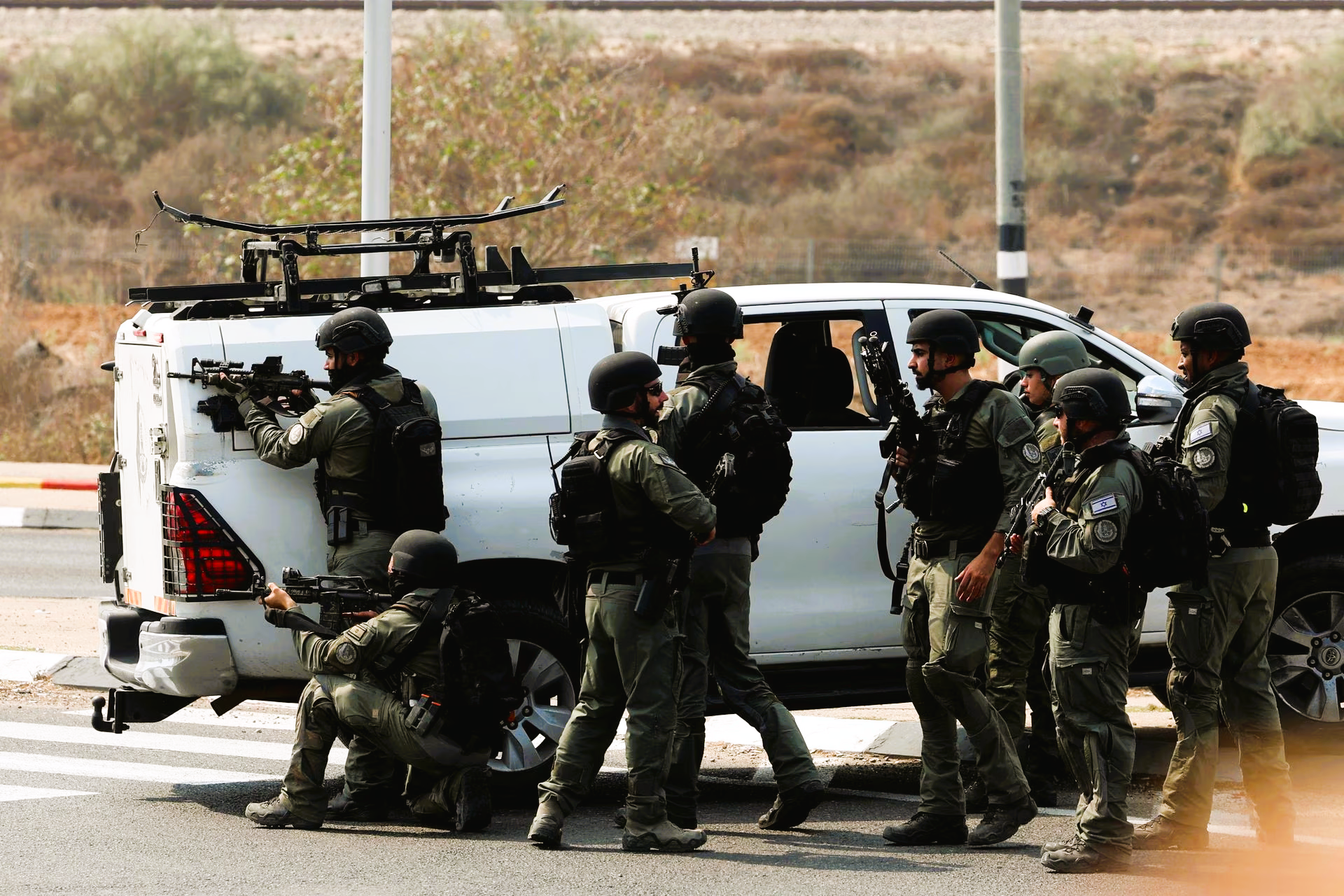The Israeli intelligence agency, Mossad, is known for its reputation of being one of the most formidable intelligence organizations in the world. For years, it has successfully thwarted numerous threats and carried out covert operations against its enemies. However, the recent Hamas attack on Israel has raised questions about the efficacy of Israeli intelligence and the failure to prevent such a major assault. This article aims to analyze the reasons behind the intelligence breakdown and shed light on the factors that contributed to this unexpected turn of events.
Israel’s Intelligence Failure
The attack launched by the Palestinian militant group Hamas on October 7, 2023, caught Israel completely off-guard. Despite its continuous focus on Hamas, which governs over two million Palestinians in the Gaza Strip, Israeli intelligence failed to anticipate and counteract the assault. This intelligence failure has raised several important questions about the capabilities of Israeli intelligence agencies, including Mossad, Shin Bet, and military intelligence.

Lack of Insight into Hamas Planning
One of the key factors contributing to the intelligence failure was the lack of insight into Hamas’ meticulous planning. Reports suggest that Israeli intelligence was unable to penetrate the intricate web of deception woven by Hamas, which had implemented a comprehensive program to conceal its preparations. This lack of insight into Hamas’ planning and intentions prevented Israeli intelligence from detecting and preventing the attack.
Overwhelming of Israeli Defenses
The sophistication and scale of the attack overwhelmed Israel’s defense systems. Despite their advanced missile defense systems and military forces, which should have been on high alert, Israel’s defenses proved ineffective in the face of the onslaught. The attackers were able to breach the advanced border fence and underground wall near Gaza, causing significant damage and casualties.

External Support for Hamas
Another intriguing aspect of the attack was the apparent external support that Hamas received. The shroud of secrecy surrounding the planning and execution of the assault suggests that Hamas likely had assistance from external entities. This support may have provided them with the resources and capabilities necessary to carry out such a coordinated and devastating attack.
Impact of the Attack
The attack had a profound impact on both Israeli and Palestinian territories, resulting in significant casualties and damage. Understanding the consequences of the attack is crucial in assessing the magnitude of the intelligence failure.
Casualty Figures
The aftermath of the attack was devastating, with reports of hundreds of casualties on both sides. Israeli health officials reported over 700 Israeli deaths and injuries surpassing 2,100, while Gaza saw 370 fatalities and 2,200 injuries. These numbers highlight the severity of the attack and the need for a thorough investigation into the intelligence failure.

Breach of Israel’s Border Defenses
The breach of Israel’s supposedly impenetrable border defenses was a significant blow to the nation’s security. The advanced border fence and underground wall near Gaza were designed to prevent such breaches, yet Hamas fighters managed to infiltrate and cause unprecedented havoc. This breach raises questions about the effectiveness and reliability of Israel’s border defense systems.
Factors Delaying Israel’s Response
Several factors further complicated Israel’s response to the attack, prolonging the duration and intensity of the assault.
Surprise Element
The meticulous planning behind the attack ensured that it was both coordinated and entirely unexpected, catching Israel at its most vulnerable. This element of surprise hindered Israel’s immediate response and allowed the attackers to inflict significant damage before a counteroffensive could be launched.
Scale and Speed of the Attack
The sheer magnitude of the assault, coupled with its rapid execution, overwhelmed Israel’s defense mechanisms. The attackers were able to launch thousands of rockets and breach the border defenses, leaving Israeli forces scrambling to mount a coordinated response.
Troop Redeployment
The increasing volatility in the West Bank necessitated the redeployment of a significant portion of Israeli troops, diverting resources from the Gaza border. This redeployment left the Gaza border more exposed than usual, further exacerbating the vulnerability of Israel’s defenses.
Tensions Leading Up to the Attack
The attack occurred amidst heightened tensions in the region, fueled by various factors such as violence at the al-Aqsa Mosque and the ongoing blockade and occupation of Palestinians. These tensions added to the complexity of the situation and may have impacted the preparedness and response of Israeli intelligence agencies.

Questions Raised about Israel’s Intelligence Agencies
The intelligence failure has raised significant questions about the readiness and effectiveness of Israel’s intelligence agencies, including Mossad, Shin Bet, and military intelligence. The shortcomings highlighted by this attack have led to a reassessment of their capabilities and strategies.
Avivi’s Remarks
Avivi, a retired Israeli general, emphasized that the failure was not solely attributed to intelligence gathering. He suggested that there was a systemic inability to collate and analyze the intelligence data efficiently. This lack of effective intelligence analysis and utilization hindered the ability to piece together an accurate picture of Hamas’ intentions and activities.
Readiness of Israel’s Intelligence Agencies
The attack has prompted a critical evaluation of the readiness and preparedness of Israeli intelligence agencies. While these agencies have been lauded for their successes in the past, the intelligence failure has exposed potential oversights and complacencies. This incident serves as a wake-up call for the need to enhance the capabilities and adaptability of Israeli intelligence agencies.
Israel’s Intelligence Agencies
Mossad, Shin Bet, and military intelligence are the key intelligence agencies in Israel. These agencies have played a crucial role in safeguarding national security and countering threats. However, the intelligence failure has highlighted the need for improvements in intelligence gathering, analysis, and coordination among these agencies.
Conclusion
The Hamas attack on October 7, 2023, was a significant blow to Israel’s intelligence prowess and a wake-up call for the nation’s security establishment. The intelligence failure exposed vulnerabilities and shortcomings within Israeli intelligence agencies, including Mossad. It is crucial for Israel to learn from this incident, reassess its intelligence capabilities, and implement necessary reforms to prevent similar failures in the future. The nation must adapt to the evolving tactics and strategies of its adversaries to maintain its security and protect its citizens.


















